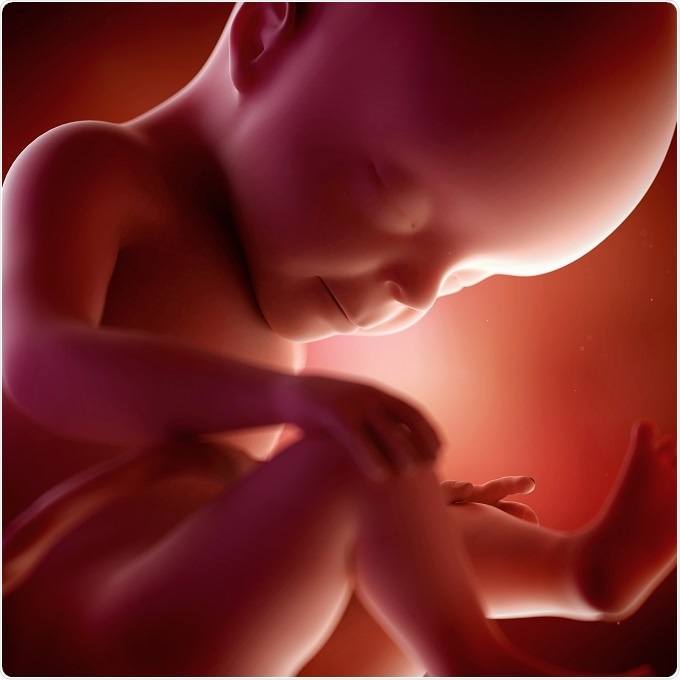Recent research into foetal behaviour using 4D ultrasound technology indicates that a fetus in the third trimester can recognise and respond to face-like shapes.
 Credit: Sebastian Kaulitzki/Shutterstock.com
Credit: Sebastian Kaulitzki/Shutterstock.com
It is well known that soon after birth, babies show greater interest in and response to faces than other objects. However, the basis of this preference was not known. It was though that innate mechanisms or rapid imprinting must be responsible, but it had not been scientifically determined.
Studies have previously shown that, during the third trimester of pregnancy, human fetuses can process perceptual information. With advances in 4D ultrasound technology, and the realisation that light shone on the abdomen of a pregnant mother can be seen within the uterus, researchers saw the potential to now assess whether the preference for faces develops prenatally.
Light comprising a triangle of three dots, two at the top and one at the bottom (representing facial features) was shone through the abdomen of pregnant mothers in the line of vision of the developing fetus. The light was then moved across the mother’s abdomen and the fetus was monitored for any head movement in response to the movement of the light. The same process was repeated with the triangle of light inverted.
They found that, among 39 fetuses at 34 weeks of gestation, there were more head turns of the fetus to look at the face-shaped light shape compared with the inverted light shape. This indicates that the preference for face-like images observed in newborns develops before they are born.
We have shown the fetus can distinguish between different shapes, preferring to track face-like over non-face-like shapes...This preference has been recognized in babies for many decades, but until now exploring foetal vision has not been attempted."
Vincent Reid, Lancaster University
These findings confirm for the first time that fetuses are able to see light and respond to it before they are born. It also shows that the preference of newborns for faces over other objects does not require learning, but is a response that develops during their development in the uterus.
Now that it is possible to study visual perception and cognition in babies before they are born, further research is planned to investigate whether the capacity of newborns to discriminate numbers and quantities also develops prenatally.